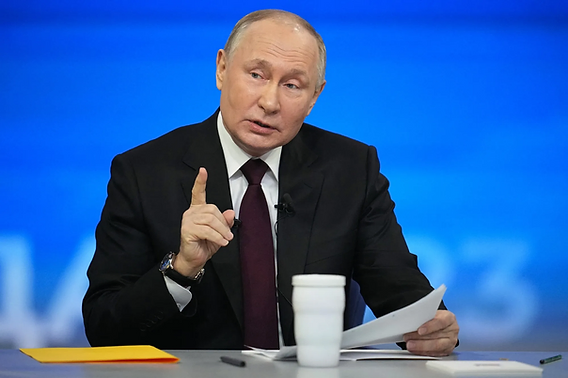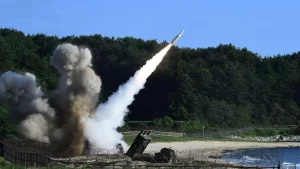
President Joe Biden’s recent decision to allow Ukraine to use long-range missiles supplied by the United States to strike inside Russia has sparked a wave of fury from Russian officials. Many believe this move could have catastrophic consequences and risk a dangerous escalation of the ongoing conflict.
In response to Biden’s decision, Russia’s government-backed newspaper, Rossiyskaya Gazeta, called it one of the “most provocative, uncalculated decisions” of his administration. The paper warned that the move could lead to severe and unpredictable consequences. Leonid Slutsky, a Russian MP and head of the pro-Kremlin Liberal-Democratic Party, expressed concern that the US’s actions would inevitably escalate the war, bringing about “serious consequences.” Senator Vladimir Dzhabarov went even further, calling the decision “an unprecedented step toward World War Three.”
While these reactions reflect deep anger, they were not unexpected. The pro-Kremlin tabloid Komsomolskaya Pravda labeled it a “predictable escalation,” highlighting that Russia had been anticipating such a move from the US. But what truly matters is how President Vladimir Putin responds to this significant development, and so far, he has remained silent.
Russian government spokesman Dmitry Peskov addressed the situation, stating that the US decision would lead to a “whole new spiral of tension” and would change the dynamics of the conflict. Peskov accused the Biden administration of “adding fuel to the fire” by increasing tensions, even as Russia’s own military actions — including the recent deployment of North Korean troops — continue to stoke the conflict.
For the West, however, the narrative is different. Western leaders argue that Russia has already exacerbated the situation through its actions, such as targeting Ukrainian civilians and recently involving North Korean troops in the war. They argue that the US is merely supporting Ukraine’s right to defend itself, especially after Russia’s full-scale invasion.
President Putin himself has not yet commented on the latest US move, but his rhetoric in recent months has made his position clear. The Kremlin has repeatedly warned that allowing Ukraine to strike Russian soil with long-range missiles would be seen as direct involvement by NATO in the war. In September, Putin declared that such a move would amount to NATO countries “fighting with Russia.”

Additionally, Putin has threatened significant consequences, including changes to Russia’s nuclear doctrine, signaling that Moscow might reconsider the conditions under which it would use nuclear weapons in response to NATO’s involvement.
Earlier in the conflict, Putin had warned that if Ukraine received long-range weapons, Russia would bolster its air defense systems and destroy any missiles aimed at its territory. He also hinted at possible retaliation, suggesting that Russia might arm adversaries in other parts of the world with similar weapons, potentially targeting “sensitive facilities” in countries that supply arms to Ukraine.
This threat of escalating the conflict globally was echoed by Belarusian President Alexander Lukashenko, a close ally of Putin. Lukashenko warned that if long-range missiles are supplied to Ukraine, Russia could retaliate by supplying weapons to other hostile forces around the world. In particular, he cited the possibility of supplying coastal missile systems to Houthi rebels in Yemen, who could then target Western ships, including British or American aircraft carriers. Lukashenko’s comments underscored Russia’s willingness to escalate the conflict beyond Ukraine’s borders.
However, some media outlets within Russia have tried to downplay the significance of the US decision. A military expert quoted in Izvestia stated that Russian forces had previously intercepted ATACMS missiles launched at Crimea, suggesting that Russia was already prepared for such attacks. Some even speculated that a potential change in US leadership could influence the situation. With President-elect Donald Trump set to take office in January, many believe his stance on Ukraine might differ significantly from Biden’s. Trump has historically been more skeptical of military assistance to Ukraine, and Russia might be calculating how his administration would handle the conflict differently.
As the situation stands, the future of US involvement in Ukraine remains uncertain, especially with the potential shift in leadership. However, for now, Putin and the Kremlin continue to send a clear message to the West: any further military escalation will not go unpunished, and Russia is prepared to respond forcefully to what it perceives as NATO’s encroachment on its territory.
In the coming months, how Russia reacts to this escalation — and the broader international response — could have profound implications not just for Ukraine, but for global security.








